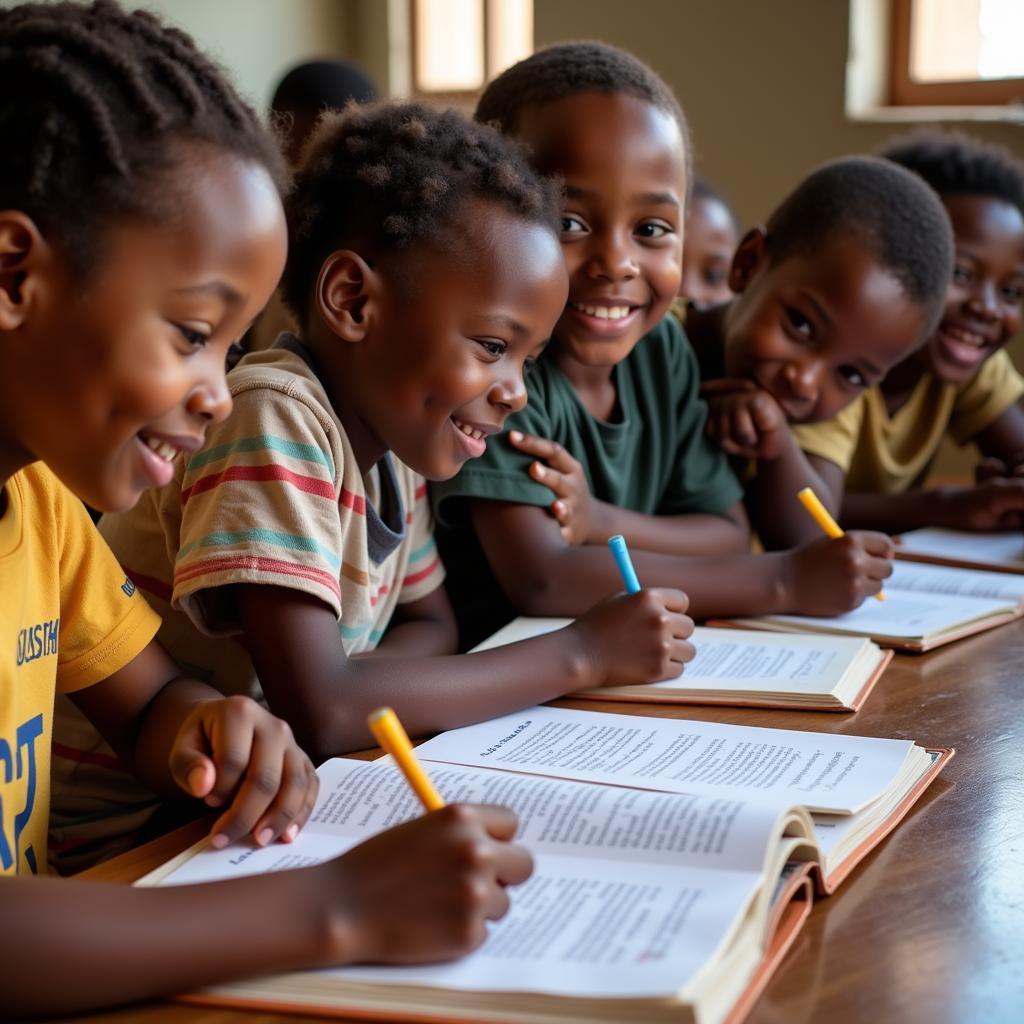A Journey into the Heart of Africa: Exploring African Languages
Africa, a continent brimming with vibrant cultures and breathtaking landscapes, is home to an astounding tapestry of languages. With over 2,000 distinct tongues spoken across its 54 countries, Africa boasts a linguistic diversity that is unmatched anywhere else in the world. This article delves into the fascinating world of African Languages, exploring their history, significance, and the challenges they face in the 21st century.
The Tapestry of Tongues: Unraveling the Diversity of African Languages
From the Afro-Asiatic languages of North Africa, including Arabic, Berber, and Somali, to the Niger-Congo languages that dominate sub-Saharan Africa, such as Swahili, Yoruba, and Zulu, the linguistic landscape of Africa is as diverse as its people. This incredible array of languages is a testament to the continent’s rich history and the intricate interplay of migration, trade, and cultural exchange that has shaped its linguistic heritage.
One of the most remarkable aspects of African languages is their unique phonetic features. Many languages, such as Xhosa and Zulu, are characterized by click consonants, sounds produced by creating a suction between the tongue and other parts of the mouth. These clicks, absent in most other world languages, add a distinctive rhythm and melody to African speech.
Beyond Words: The Cultural Significance of African Languages
African languages are more than just tools of communication; they are repositories of culture, history, and identity. Through language, generations have passed down their traditions, beliefs, and worldviews, preserving the essence of what it means to be African. Oral storytelling, a cornerstone of many African cultures, has played a vital role in transmitting knowledge, values, and history from one generation to the next.
The preservation of African languages is crucial for safeguarding cultural heritage. As languages disappear, so too does the wealth of knowledge, history, and cultural expressions embedded within them. Recognizing this, there is a growing movement across Africa to promote and revitalize indigenous languages, ensuring their survival for future generations.
Challenges and Opportunities: African Languages in the 21st Century
Despite their richness and cultural significance, many African languages face challenges in the modern world. The legacy of colonialism, globalization, and the dominance of major international languages have led to the marginalization of many indigenous tongues. Language shift, where speakers abandon their native languages in favor of more widely spoken ones, poses a significant threat to the linguistic diversity of the continent.
 Children Learning an African Language
Children Learning an African Language
However, amidst these challenges, there are also opportunities. The rise of digital technology has created new avenues for promoting and preserving African languages. Online dictionaries, language learning apps, and digital platforms for sharing content in indigenous tongues are helping to revitalize interest in these languages, particularly among younger generations.
Conclusion: Celebrating the Linguistic Tapestry of Africa
The languages of Africa are a testament to the continent’s rich cultural heritage and the enduring legacy of its people. As we celebrate the diversity of tongues spoken across the continent, it is essential to recognize the importance of preserving these languages for future generations. By supporting language revitalization efforts and fostering an appreciation for the beauty and significance of African languages, we can help ensure that this vibrant tapestry of cultures continues to thrive.
FAQ
1. What is the most widely spoken language in Africa?
While there are over 2,000 languages spoken in Africa, Arabic is considered the most widely spoken language on the continent, followed by Swahili and Hausa.
2. Are there any endangered African languages?
Yes, unfortunately, many African languages are endangered due to factors like language shift and globalization. Some examples include Yeyi in Botswana, Dahalo in Kenya, and Shabo in Ethiopia.
3. How can I contribute to the preservation of African languages?
You can contribute by learning an African language, supporting organizations involved in language revitalization efforts, and raising awareness about the importance of linguistic diversity.
4. Are there any online resources for learning African languages?
Yes, there are various online resources available, such as language learning apps, online dictionaries, and cultural platforms that offer resources for learning African languages.
5. Why is it important to preserve African languages?
Preserving African languages is crucial for safeguarding cultural heritage, promoting linguistic diversity, and ensuring the transmission of knowledge, traditions, and values for generations to come.
Do you have other questions?
Check out these other helpful articles on our website:
- Afa abi in african language
- African language crossword
- African ling
- African language translation services
- Hello in african language
Need further assistance? Contact us at +255768904061, [email protected], or visit us at Mbarali DC Mawindi, Kangaga, Tanzania. Our dedicated customer support team is available 24/7 to assist you.

